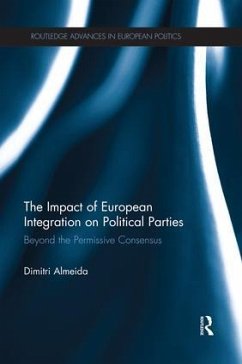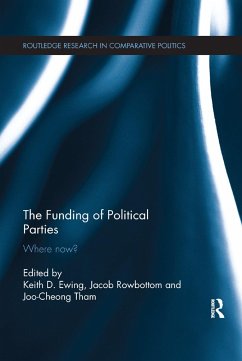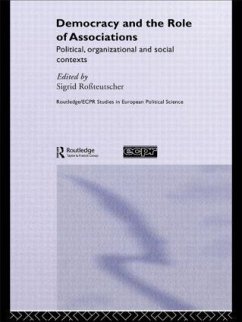
The Role of Political Parties in the European Union

PAYBACK Punkte
30 °P sammeln!
At the national level, political parties play an important role in making representative democracy work. They help to aggregate and communicate policy preferences, link decision-making between different legislative bodies and hold politicians accountable. In the European Union, however, the electoral connection is weak. This casts doubt on the impact of partisan politics at the European level. Are political parties able to fulfil their role as 'transmission belts' ensuring political accountability and consistent decision-making in the European Union? To answer this question we look at the micr...
At the national level, political parties play an important role in making representative democracy work. They help to aggregate and communicate policy preferences, link decision-making between different legislative bodies and hold politicians accountable. In the European Union, however, the electoral connection is weak. This casts doubt on the impact of partisan politics at the European level. Are political parties able to fulfil their role as 'transmission belts' ensuring political accountability and consistent decision-making in the European Union? To answer this question we look at the micro foundations of partisan politics in the European Union. The contributions in this volume all depart from a common theoretical framework but use a wide range of empirical data and research designs, covering qualitative process-tracing, elite interview and large-N quantitative analysis. Moreover, they examine party effects in the electoral and legislative arena. Finally, the volume covers all European institutions: the Commission, the Council of the European Union, the European Council and the European Parliament. The findings enhance our understanding of the workings of decision-making in Brussels, add to the debate on the EU democratic deficit, and highlight the usefulness of drawing upon insights from the literature on Comparative Politics when studying the European Union. This book was published as a special issue of the Journal of European Public Policy.














